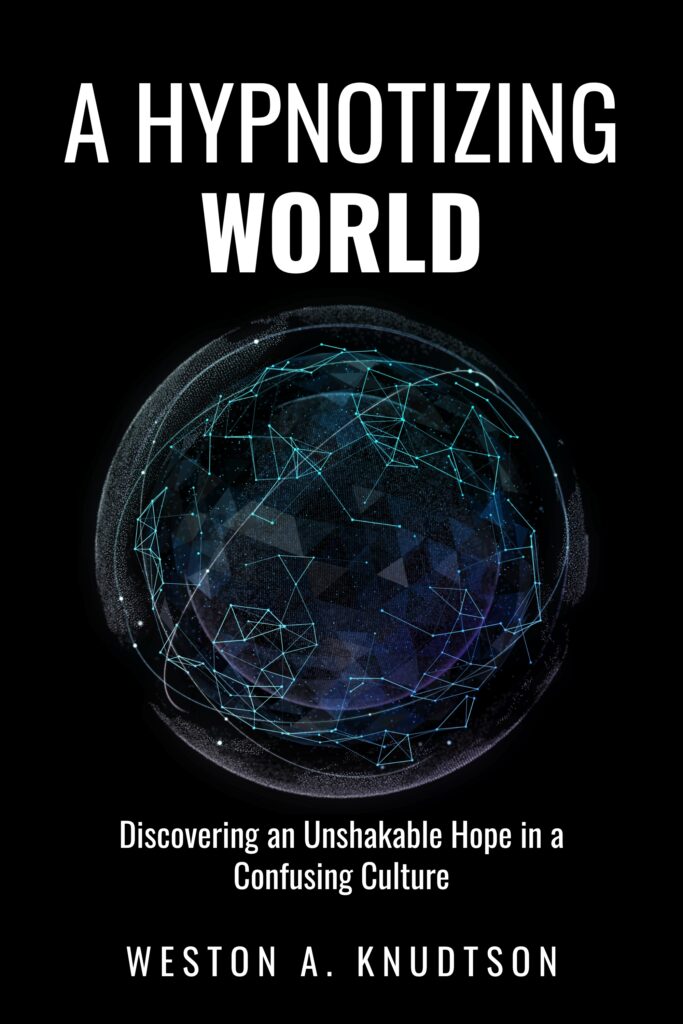This is a transcript of Episode 13 of the WAK Talk podcast. Listen on your favorite podcast platform by clicking here. Or watch on YouTube by clicking here.
Are there consequences for your beliefs?
In today’s episode, I want to talk to you about the consequences of our beliefs. I’m sure you’ve heard that there are consequences for your actions, but why were the actions taken in the first place? It’s usually from a belief, even if it’s a fleeting belief.
Beliefs are usually something that we hold deep down to be true, whether they are actually true or not. They are often based on experiences, feelings, fears, and expectations. They can be shaped by the culture and the media. They can also be tied to family and friends, or anyone we trust. And our beliefs affect how we live each day and how we treat others. And therefore, our beliefs have consequences.
One example is with my kids. I’ve been working with them on thinking before they act. A lot of times when one of my kids gets hurt it’s because one of their siblings trips or pushes them. When I ask why they did this, the answer is often: “I thought it would be funny.” Or “I thought it would be fun.” This is a belief. It’s a fleeting belief, but it is a belief, none the less. They believe that if they trip or push their brother or sister it will be funny. The consequences for this belief are that someone will get hurt and the one who acted on this belief will get disciplined and may feel regret, guilt, or shame.
What would you do if you found out a belief you had was not true? Would you care? Would you work to change or would you continue living the way you’ve been living?
Another example of how beliefs have consequences is when I was growing up, I considered myself a Christian because my parents were Christians. We went to church every Sunday, prayed, and read the Bible. That is what I believed made me a Christian. This may sound fine, this may be a belief that you hold or that you’ve seen other people believe, but there are consequences for this belief. The consequences for my belief were that I thought I had to do all these things to earn my salvation. And with that, I became judgmental towards people who didn’t live the same way I did. I held grudges and had this weight of guilt on my shoulders all the time because of my failures. This was an unhealthy and untrue belief.
It wasn’t until high school and college when I really started to grow a relationship with Jesus. This was when God opened my eyes to the truth that I couldn’t earn my salvation, no matter how hard I worked or how “good” I tried to be. Jesus already did all the work by dying on the cross for my sins and rising from the dead. I could never pay the price for my sins.
So, my belief changed, it was corrected. Now I’m not judging people because they aren’t living like me, but I am focused on sharing Jesus with them. It’s not about me, it’s about Jesus.
Again, our beliefs have consequences. My beliefs affected how I viewed other people and the way they were living. And my beliefs affected the way I was living because I was putting pressure on myself to be a “good” person.
The final example I want to point out is the common saying “You do you.” This saying is the belief that the way we live shouldn’t matter to anyone else. I’ll live my way if you live your way and simply leave me alone. Some people also say “live and let live.” That would be nice if it actually worked out that way. But the way we live affects the people around us, whether we like it or not. Just like with my kids thinking pushing or tripping would be funny. What if I handled that situation by simply saying, “You do you?” My kids may eventually figure out that pushing and tripping isn’t funny or they may not. They may become the school bully and continue with that belief.
We saw this “You do you” mentality take a turn for the worst in the last five years when the woke and gender ideologies entered government schools and the work place. The people that were allowed to be themselves, believing in things that didn’t align with truth, were now fighting to indoctrinate everyone to accept and think the way they think. And the people that were just minding their own business were caught off guard. The belief of “you do you” has consequences.
So, with around eight billion people with different beliefs, the big questions are then: who is right and who is wrong? Is there a right and a wrong? Can everyone be right? And who has the authority to decide?
For me, I believe God alone has the authority. And I believe He gave us the Bible to better understand who He is and the authority He has. Without the Bible, we are left to our own ideas about God and, yet again, everyone’s ideas about God would clash. With the Bible, it is clear who God is and the authority He holds over humanity and the heavens and the earth. On the flip side, if we let any man or woman decide what is right and wrong, what happens when that man or woman dies or leaves the position of power? And why would any man or woman, or group of people, get to decide over another? It makes more sense to listen to an authority above and beyond any man or woman.
I mean, what are the consequences for believing there is no God? Without God, there is no higher standard for morality. There’s no law over all humanity. Without God, only the government, ruler, or elites get to decide. Whatever someone in authority or the latest popular vote declares as right or wrong is what becomes right or wrong. But this could change with the next generation. Life would have less value and meaning. Truth would be non-existent.
I could spend many hours pointing out other examples of beliefs and their consequences. But I want to leave you with some big ones to think about. These affect the everyday life: If you believe life has no meaning or purpose; if you believe people can’t change; if you believe children are a burden instead of gifts; if you believe marriage is a ball and chain; if you believe the universe happened by chance; if you believe there is no life after death; if you believe there is no God. All of these beliefs have consequences and affect how you live and how you treat others.
The main point I’m trying to make is that our beliefs have consequences and it’s important to evaluate what you believe. Not all our beliefs are true. It’s necessary to weed out the ones that aren’t true. Ask yourself: why do you believe what you believe? Where do your beliefs lead you? How do your beliefs affect how you treat others?
In my next episode, I’m going to talk specifically about the consequences of our beliefs in relation to voting and the importance of being an informed voter.


